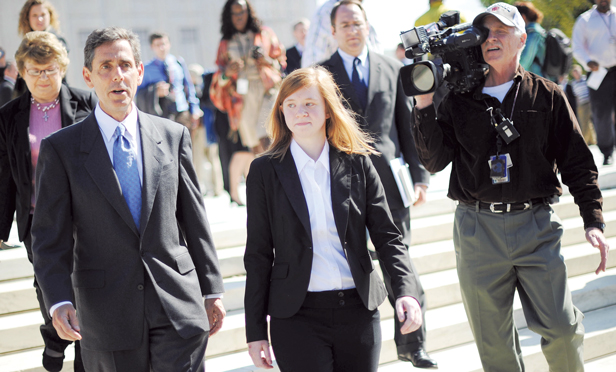One year after a landmark constitutional decision on the nation’s new federal health care law, the U.S. Supreme Court in 2013 took historic steps in two civil rights cases that will define the Roberts Court for some time to come.
Believing that national opinion on gay marriage was moving in their direction, civil rights groups optimistically awaited the justices’ rulings in two same-sex marriage cases on the October 2012 docket. However, they viewed a major challenge to the Voting Rights Act with considerable anxiety because of the Roberts Court’s existing precedents on race and voting rights. Their feelings were justified on both counts.
This content has been archived. It is available through our partners, LexisNexis® and Bloomberg Law.
To view this content, please continue to their sites.
Not a Lexis Subscriber?
Subscribe Now
Not a Bloomberg Law Subscriber?
Subscribe Now
LexisNexis® and Bloomberg Law are third party online distributors of the broad collection of current and archived versions of ALM's legal news publications. LexisNexis® and Bloomberg Law customers are able to access and use ALM's content, including content from the National Law Journal, The American Lawyer, Legaltech News, The New York Law Journal, and Corporate Counsel, as well as other sources of legal information.
For questions call 1-877-256-2472 or contact us at [email protected]






